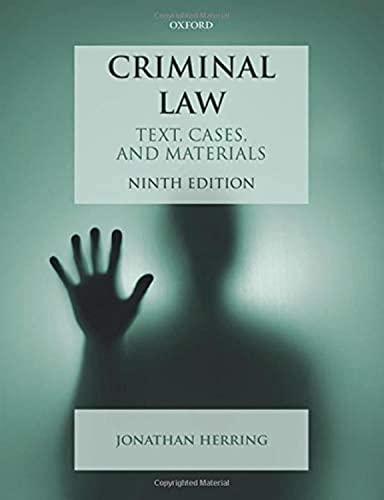Answered step by step
Verified Expert Solution
Question
1 Approved Answer
In Mapp v. Ohio, the Supreme Court reviewed a case involving a police search, and the Court held that . . . Group of answer
In Mapp v. Ohio, the Supreme Court reviewed a case involving a police search, and the Court held that . . . Group of answer choices The Fourth Amendment's proscription on unreasonable search and seizure did not apply to wiretaps. The Fifth Amendment privilege against self-incrimination requires law enforcement officials to advise a suspect interrogated in custody of his rights to remain silent and to obtain an attorney. that evidence obtained in violation of the Fourth Amendment, which protects against "unreasonable searches and seizures," may not be used in state law criminal prosecutions in state courts. the exclusionary rule was not a necessary ingredient of the Fourth Amendment's right against warrantless and unreasonable searches and seizures. the Fourth Amendment protection from unreasonable search and seizure protects an individual's "reasonable expectations of privacy," so any intrusion into one's "reasonable expectations of privacy" is a search and law enforcement must have a warrant (or an exception to the warrant requirement) to proceed
Step by Step Solution
There are 3 Steps involved in it
Step: 1

Get Instant Access to Expert-Tailored Solutions
See step-by-step solutions with expert insights and AI powered tools for academic success
Step: 2

Step: 3

Ace Your Homework with AI
Get the answers you need in no time with our AI-driven, step-by-step assistance
Get Started


